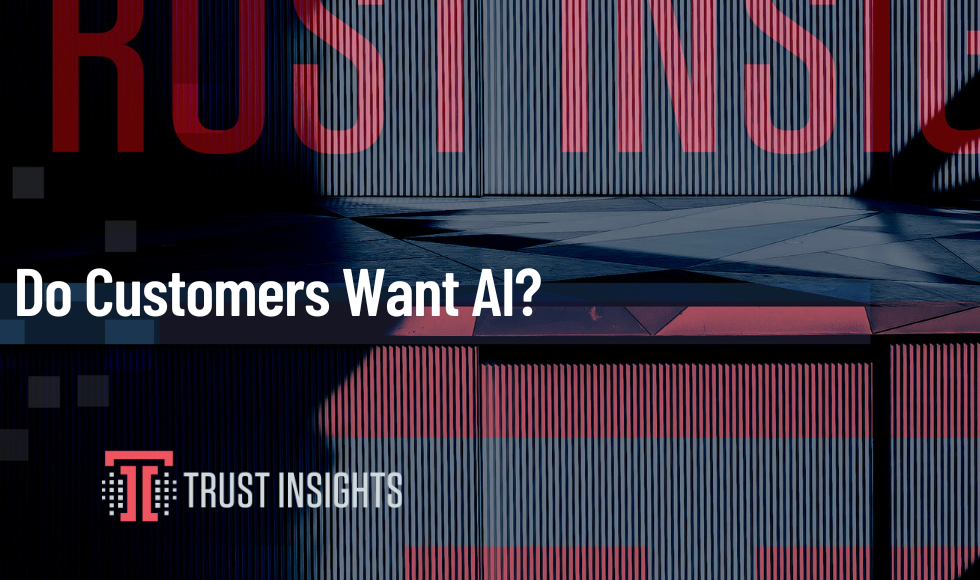This data was originally featured in the May 29th, 2024 newsletter found here: INBOX INSIGHTS, MAY 29, 2024: DO CUSTOMERS WANT AI, DATA IS EVERYWHERE
You’ve probably heard people say, “AI will do this, those skills are going to be irrelevant.”
Last weekend, I had a conversation with a good friend, and she was telling me that her guests were praising the food she had cooked. They talked about the quality and the taste. She let them know that instead of purchasing the products at a well-known, allegedly organic grocery store, she opted to purchase her goods from a small business where things were hand-cut and hand made.
This isn’t a new thing – the opposition between small business and big chain stores. But it’s even more important now, especially with generative AI.
Those same people who tell you that AI can do the jobs that were once done by humans are right. Those jobs can be done by AI. That doesn’t mean that people want it or will buy it.
There are industries, like marketing, where using AI makes a lot of sense. Process development and optimization with AI mean that you can do more meaningful work. You can spend your time building relationships and creating engaging content. You can dig deep and get to know your audience.
So this begs the (now) age-old question: will AI make it better?
In some cases, yes. It will optimize what you’re doing. We were talking with an educational institution earlier this week and there were a lot of opportunities to use AI. It would enhance data organization and search for their members, allowing them to more quickly access much-needed resources.
But in the case of a butcher shop, AI might enhance ordering, but not the product. In 2017, it was publicly announced that Amazon had acquired Whole Foods. The original mission and vision of Whole Foods was to fit in and become part of the community. Each store was unique to its neighborhood, and they carried products local to those regions. Today, with Amazon at the helm, there is less customization and more mass production. What the consumer sees is that quality has gone down, and there is nothing unique or special about the items being carried anymore.
In 2024, there have been 25 product recalls, according to the USDA. There are about 70 recalls on average per year. When you look at where the recalls came from, they aren’t generally small businesses. They are the companies with large factories that are mass producing products. They rely on process automation and AI to execute the majority of their businesses.
What does that mean for you? Among all the conversations about AI taking over, there’s still a need for non-AI skills. There’s still a demand for handcrafted products. That includes what you create as a marketer.
Talk to your audience. Find out what they value. It comes back to understanding your Ideal Customer Profile, which ironically, you can create using AI. But, regardless of how you arrive at your results, understanding your customer will drive whether and where you integrate AI into your business.
Before you bring AI into everything, make sure you know who your customer is and what they value. Use this insight as your guideline for where the use of AI makes sense and where it could hurt your customers.
Are you tuned in to what your customers want? Reach out and tell me, or come join the conversation in our Free Slack Group, Analytics for Marketers.
– Katie Robbert, CEO







